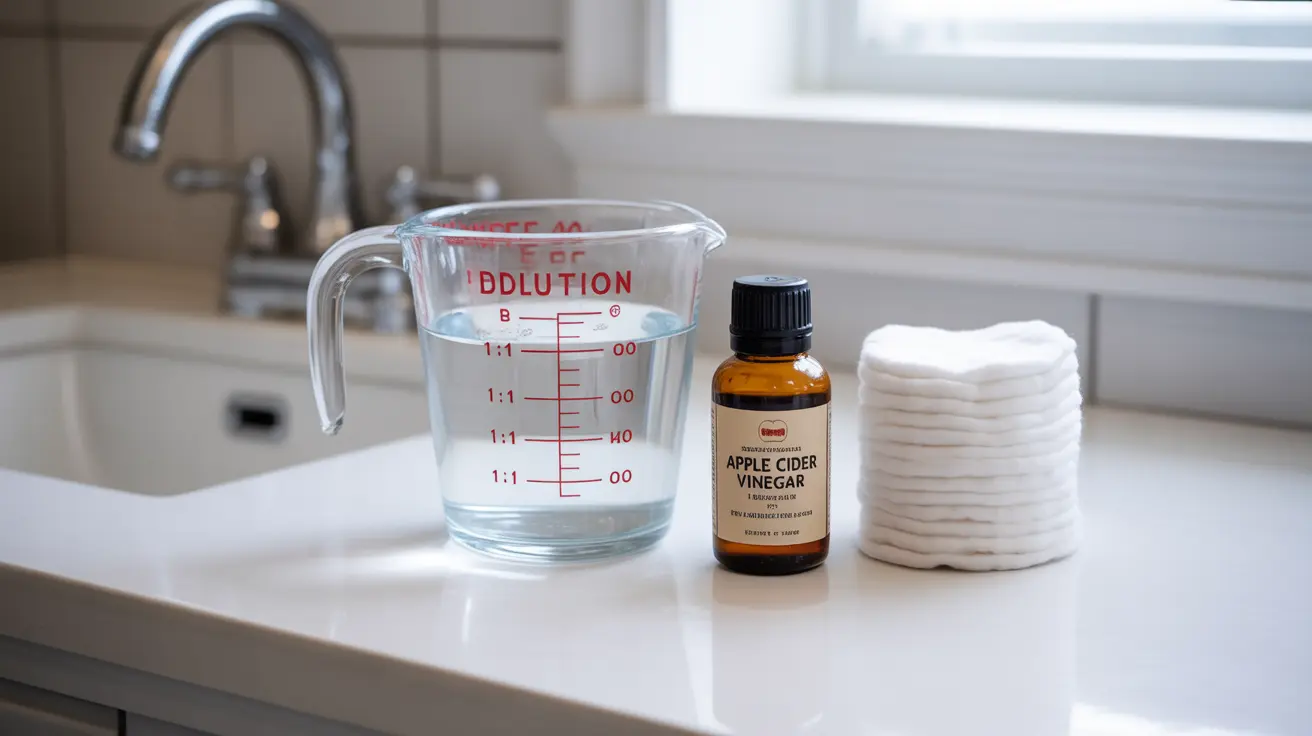Many people seeking natural remedies for acne have turned to apple cider vinegar (ACV) as a potential solution. While this pantry staple has gained popularity in skincare routines, it's crucial to understand both its potential benefits and risks before incorporating it into your acne treatment regimen.
This comprehensive guide examines the scientific evidence behind using apple cider vinegar for acne, proper application methods, and important safety considerations to help you make an informed decision about this treatment option.
How Apple Cider Vinegar May Help with Acne
Apple cider vinegar contains several compounds that could potentially benefit acne-prone skin:
- Acetic acid with antimicrobial properties
- Alpha-hydroxy acids (AHAs) that may help with cell turnover
- Natural probiotics that could support skin health
- Malic acid with gentle exfoliating properties
These components may help balance skin pH, reduce inflammation, and fight acne-causing bacteria. However, it's important to note that scientific research specifically studying ACV's effects on acne is limited.
Safe Application Methods
If you choose to try apple cider vinegar for acne, proper dilution and application are crucial:
- Always dilute ACV with water (1 part vinegar to 3-4 parts water)
- Perform a patch test before full application
- Apply the diluted solution using a cotton ball
- Start with once-daily application
- Never apply undiluted ACV directly to skin
Potential Risks and Side Effects
Using apple cider vinegar on your skin carries several risks that should be carefully considered:
- Chemical burns from improper dilution
- Skin irritation and redness
- Disruption of natural skin barrier
- Increased sensitivity to sunlight
- Potential scarring if used too concentrated
More Effective Alternatives for Acne Treatment
Several evidence-based alternatives may be more effective for treating acne:
- Benzoyl peroxide
- Salicylic acid
- Topical retinoids
- Tea tree oil
- Professional dermatological treatments
These options have more substantial research supporting their effectiveness and safety for acne treatment.
Frequently Asked Questions
Is apple cider vinegar effective for treating acne and reducing acne scars?
While apple cider vinegar contains compounds that may help with acne, scientific evidence specifically supporting its effectiveness for acne treatment is limited. It may have some antibacterial properties, but there's insufficient evidence to confirm its effectiveness for acne scars.
How should apple cider vinegar be safely applied to the skin to avoid irritation or burns?
Always dilute apple cider vinegar with water using a 1:3 or 1:4 ratio (vinegar to water). Perform a patch test first, apply using a cotton ball, and start with once-daily application. Never use undiluted ACV on your skin.
What are the potential side effects of using apple cider vinegar on acne-prone skin?
Common side effects include skin irritation, redness, burning sensation, and increased sensitivity. In severe cases, chemical burns can occur. Some people may experience dryness, peeling, or temporary changes in skin texture.
Can apple cider vinegar worsen acne or cause skin damage if used improperly?
Yes, improper use of apple cider vinegar can worsen acne and damage skin. Using it undiluted or too frequently can disrupt the skin barrier, cause chemical burns, and potentially lead to increased breakouts and scarring.
Are there safer and more effective alternatives to apple cider vinegar for acne treatment?
Yes, several proven alternatives exist, including benzoyl peroxide, salicylic acid, and topical retinoids. These ingredients have substantial scientific research supporting their effectiveness and safety for acne treatment. Consulting with a dermatologist can help determine the most appropriate treatment for your specific skin concerns.




